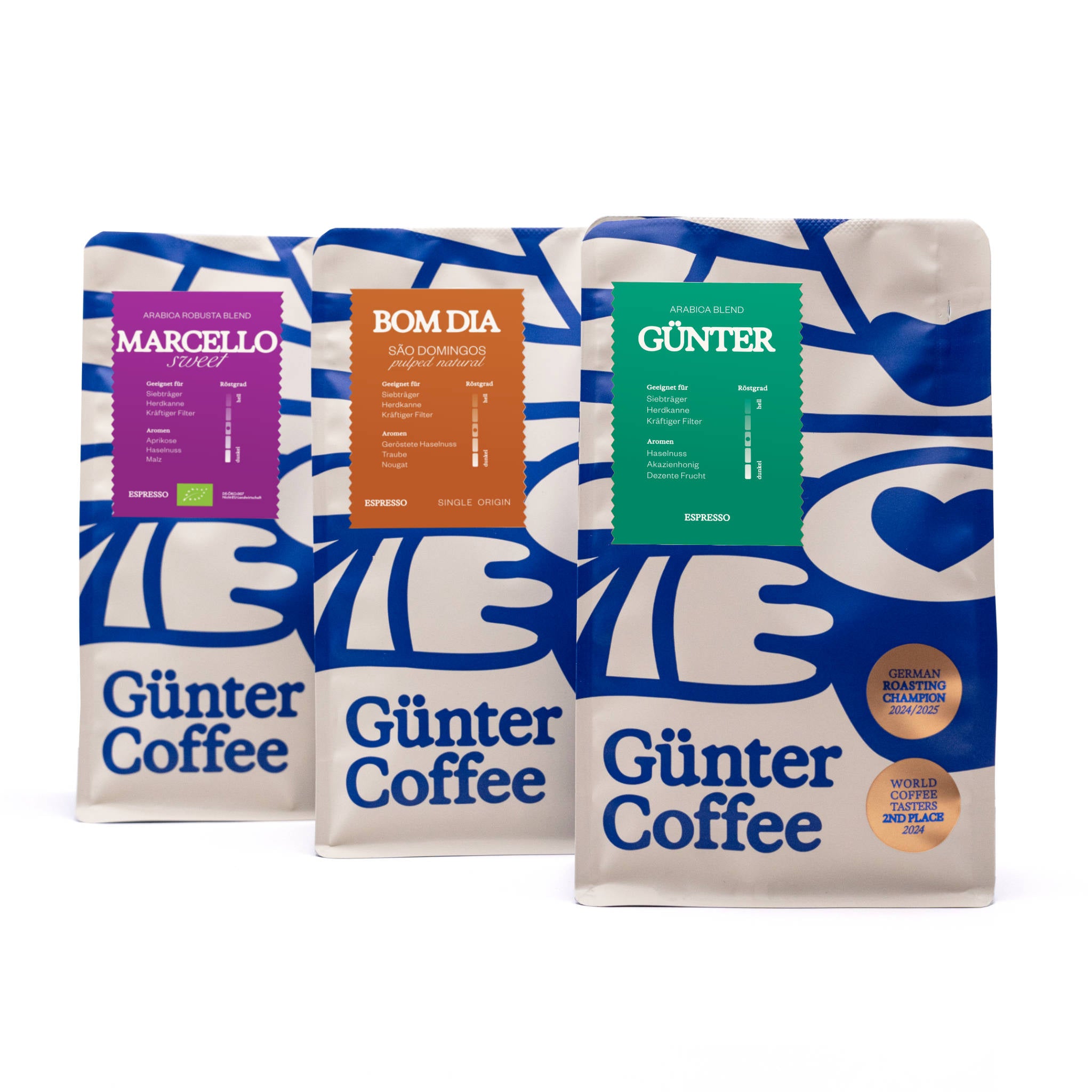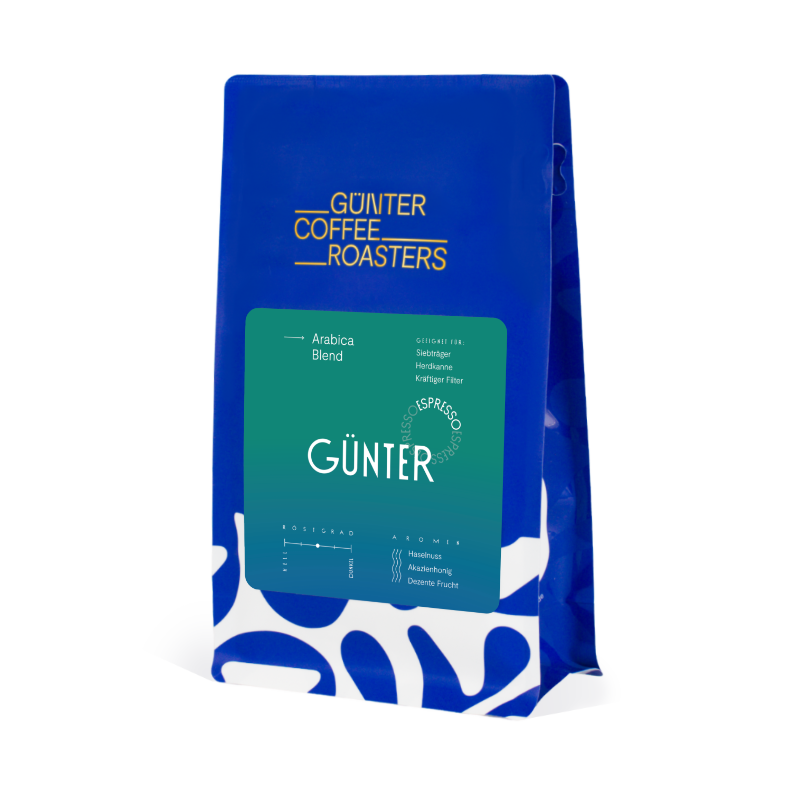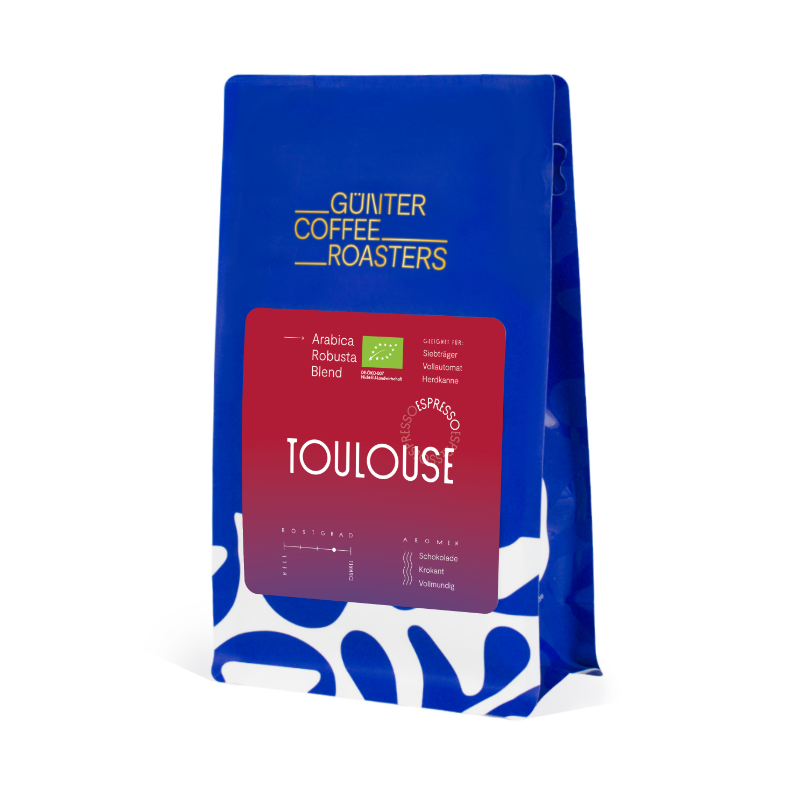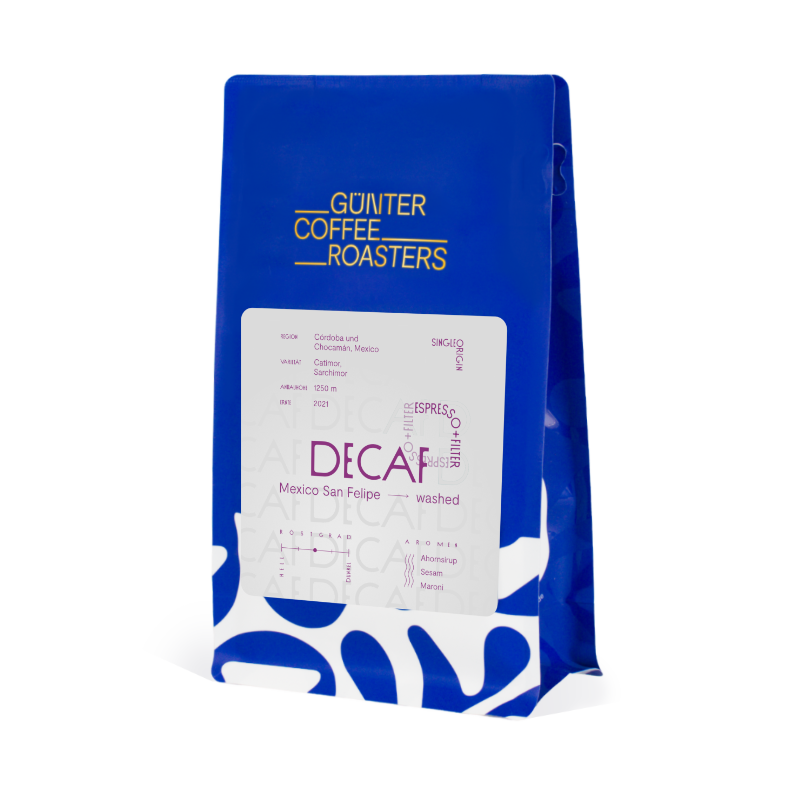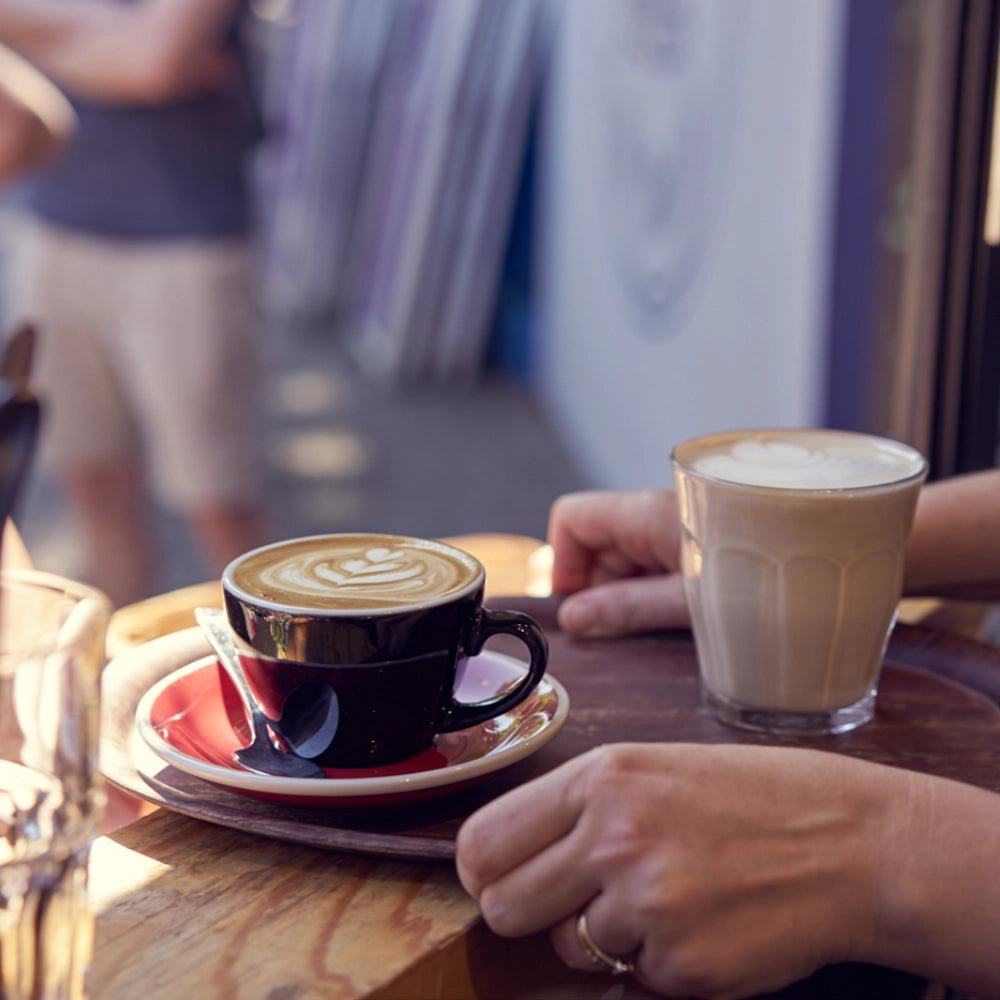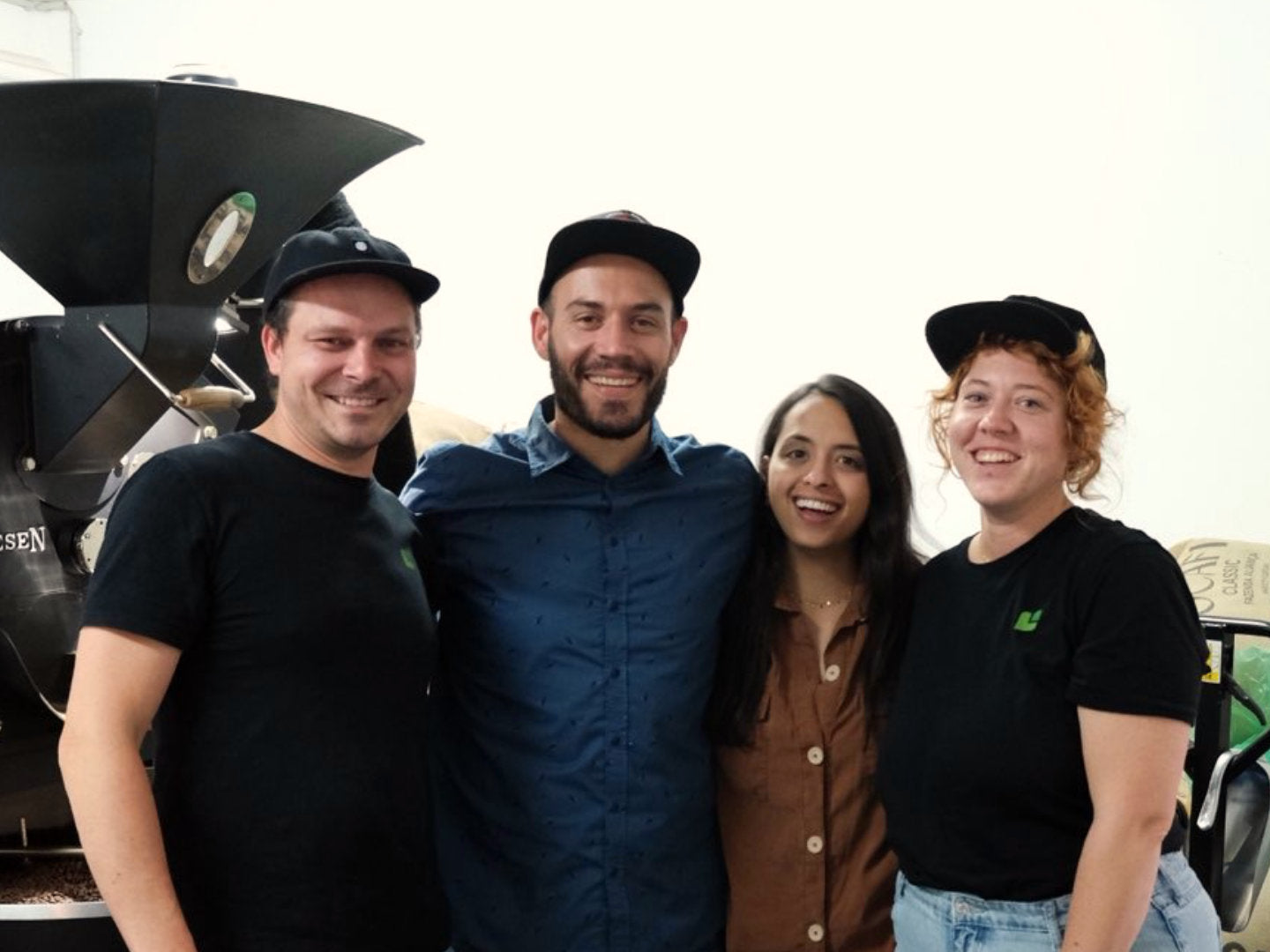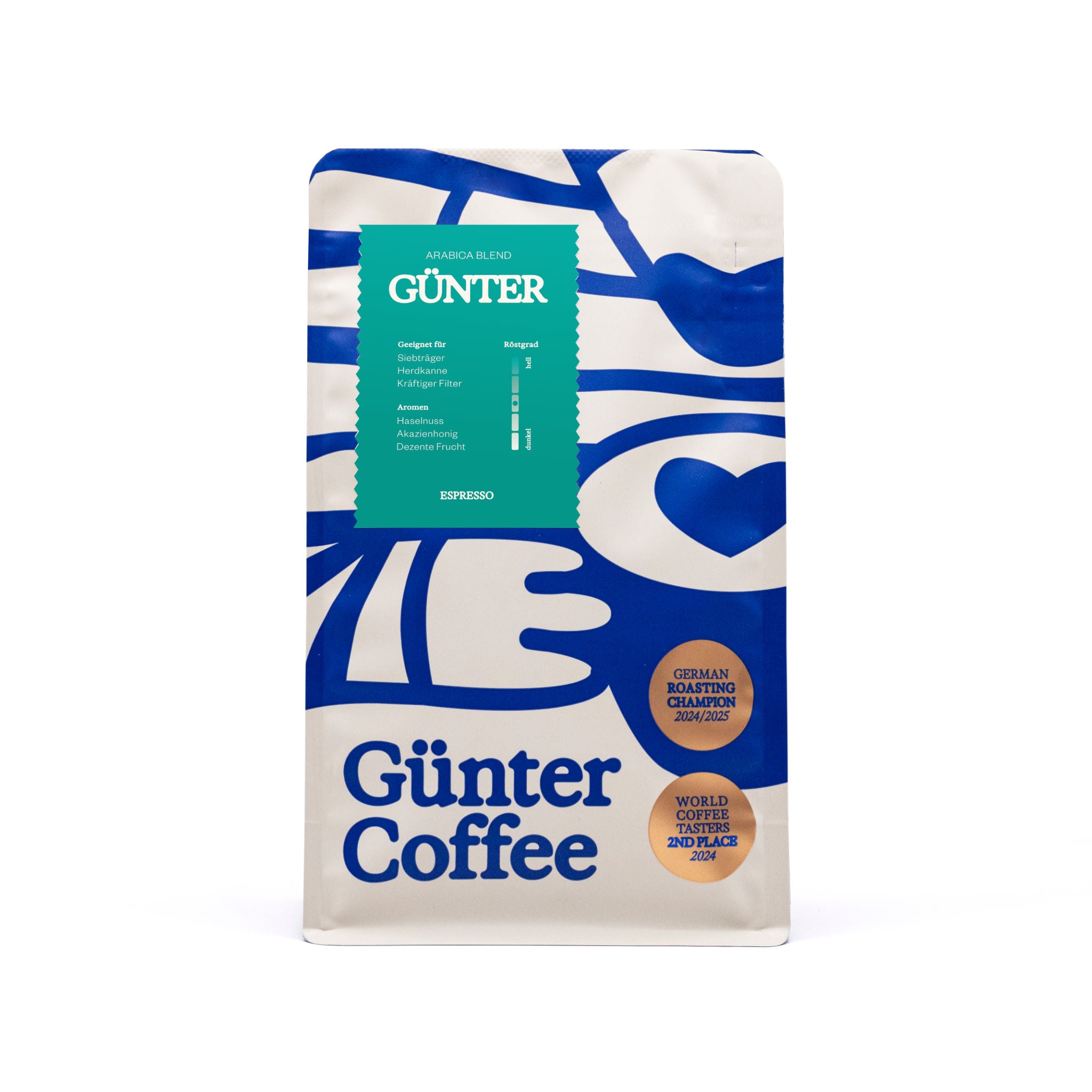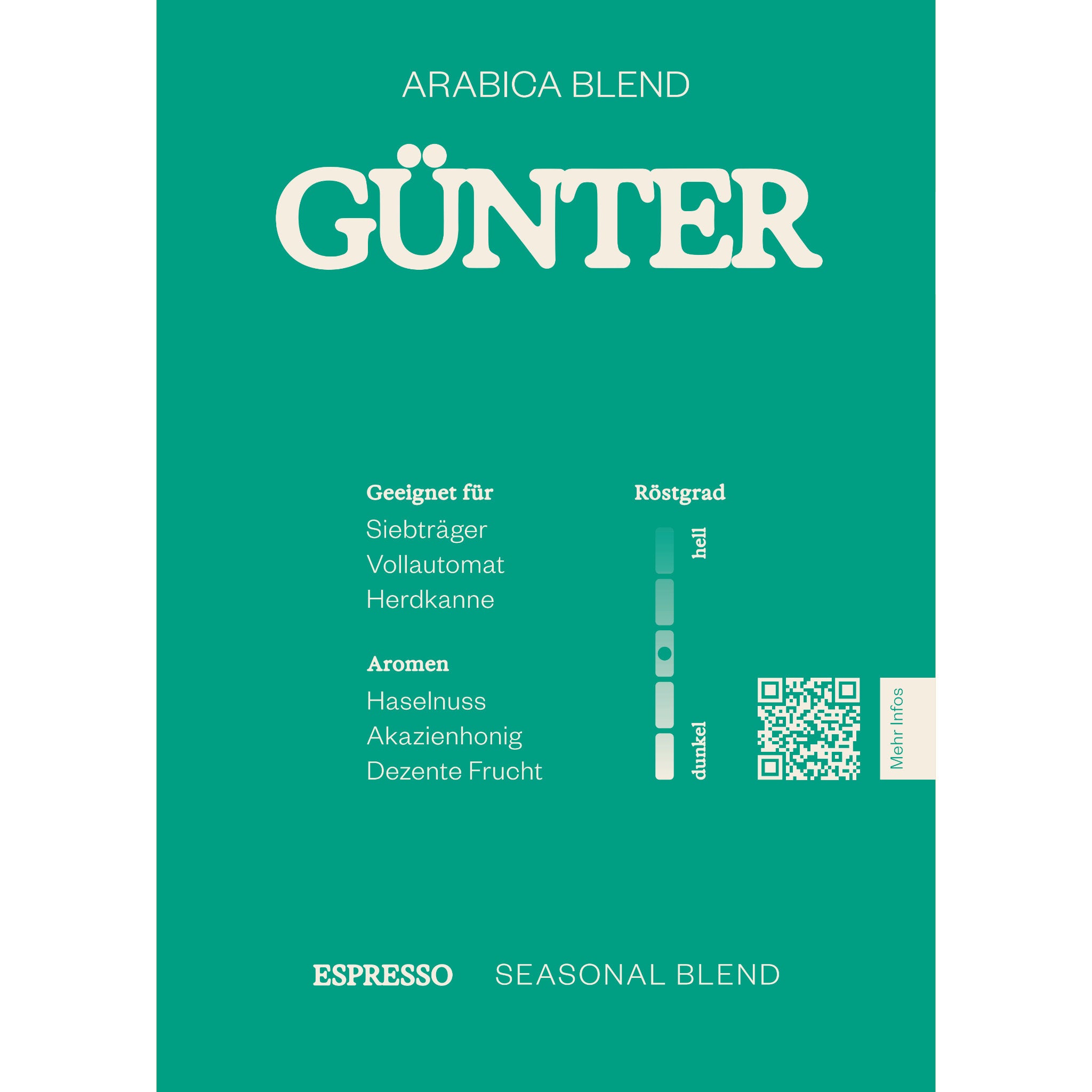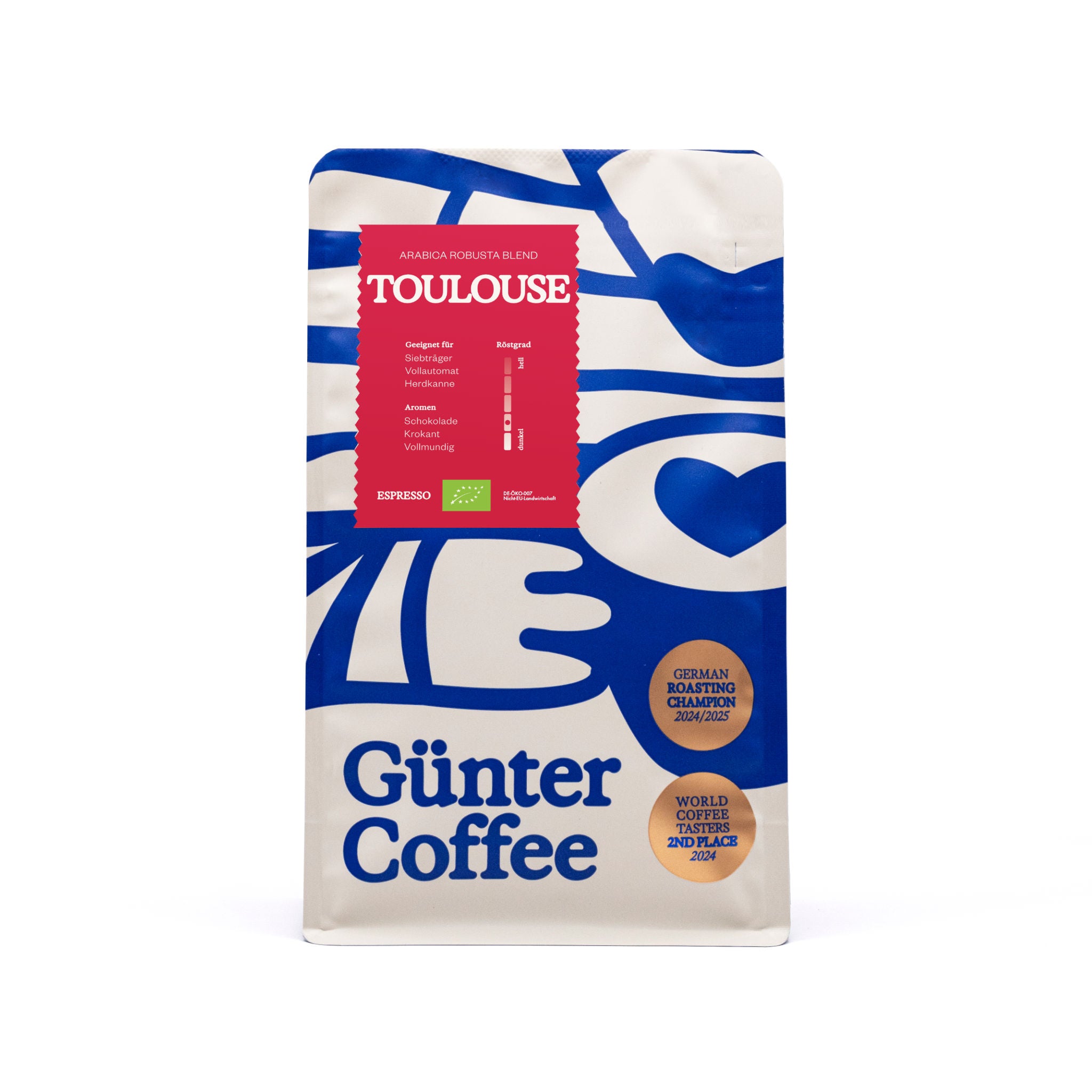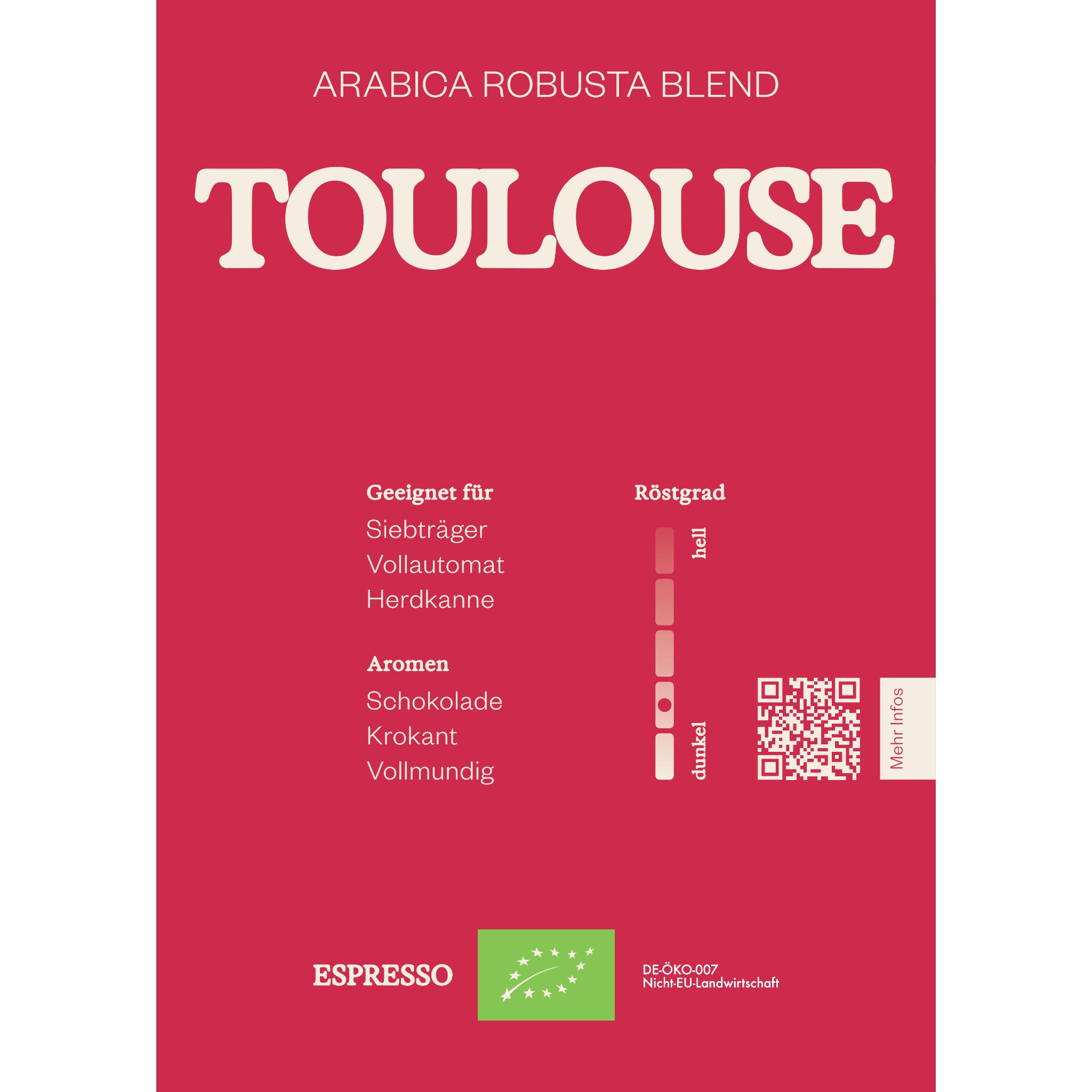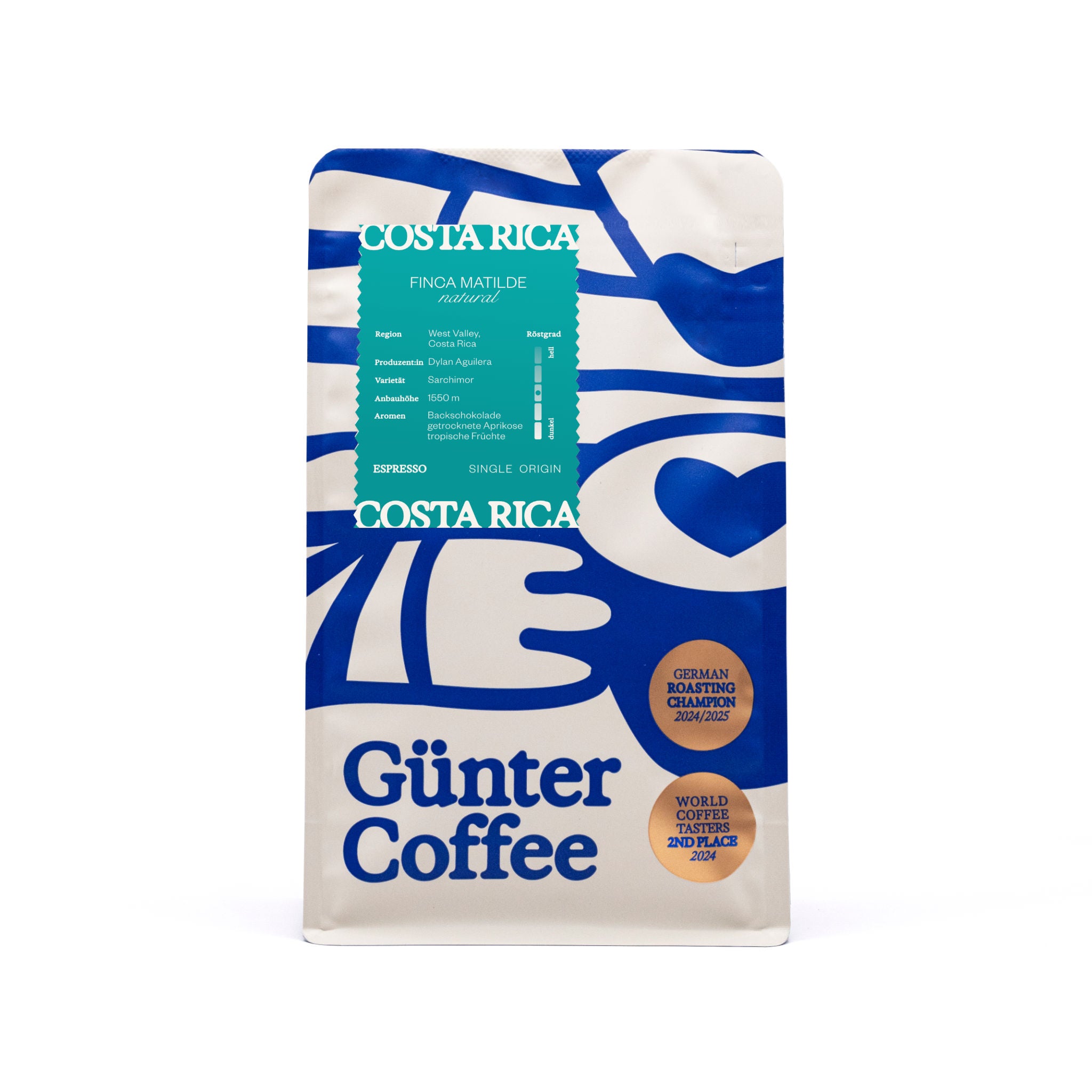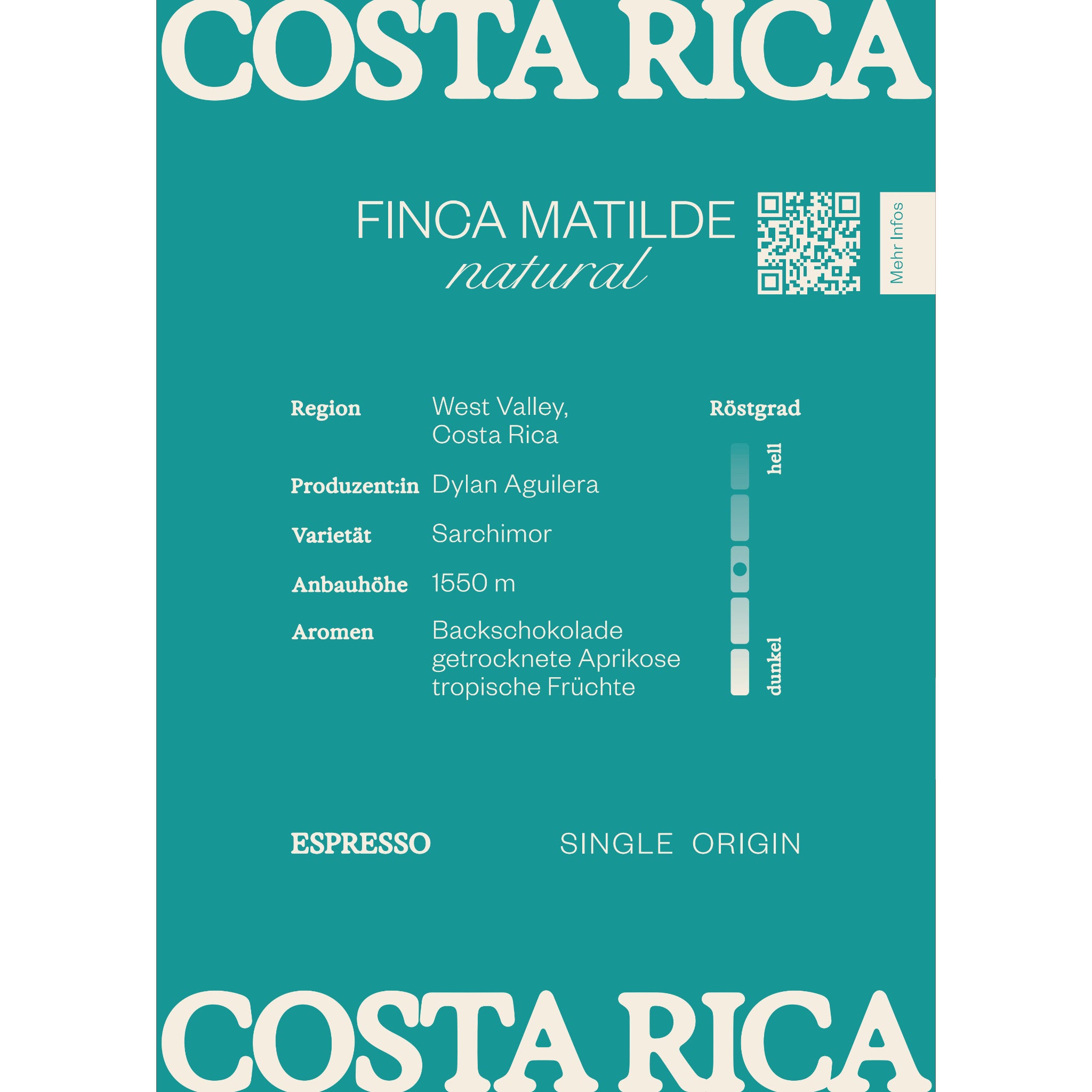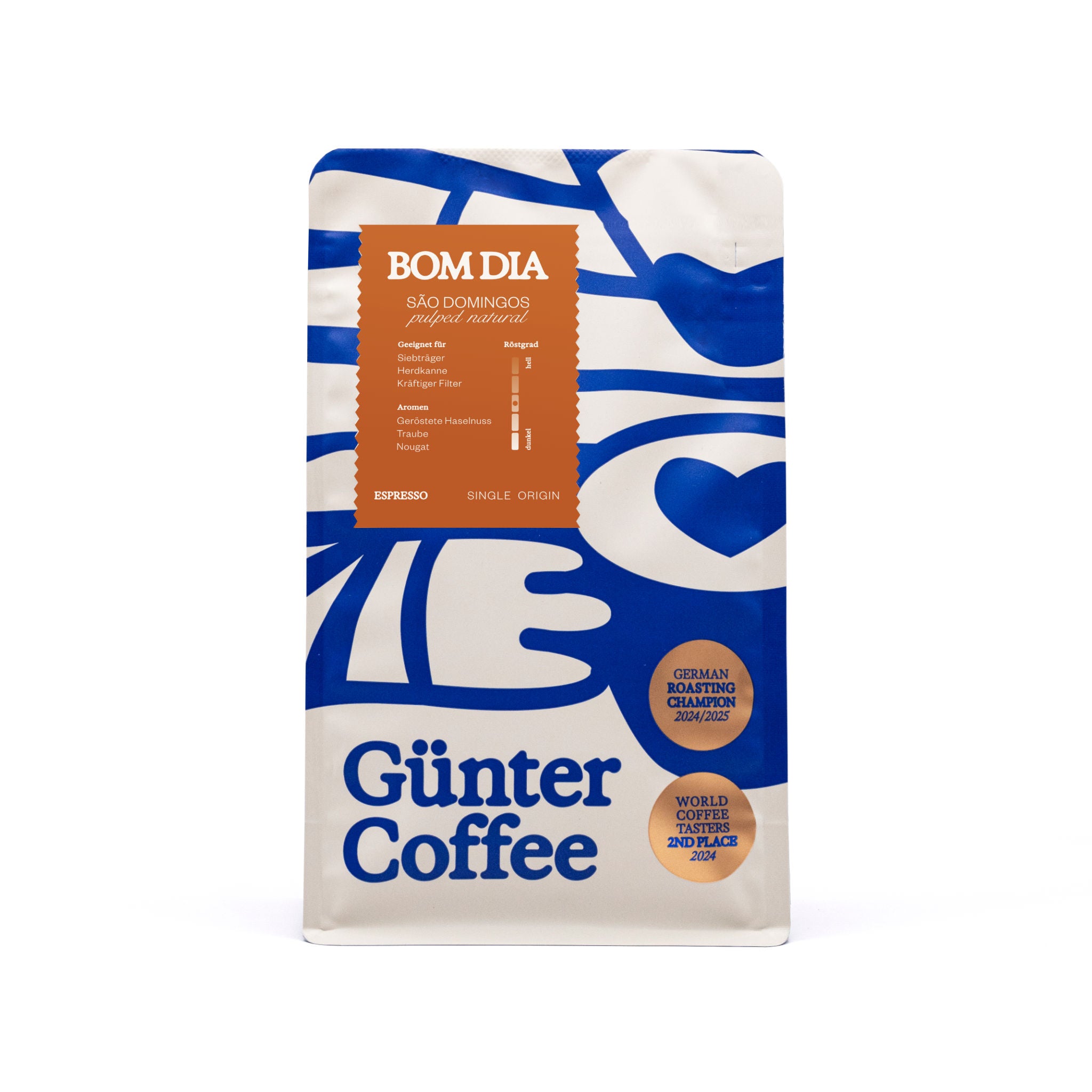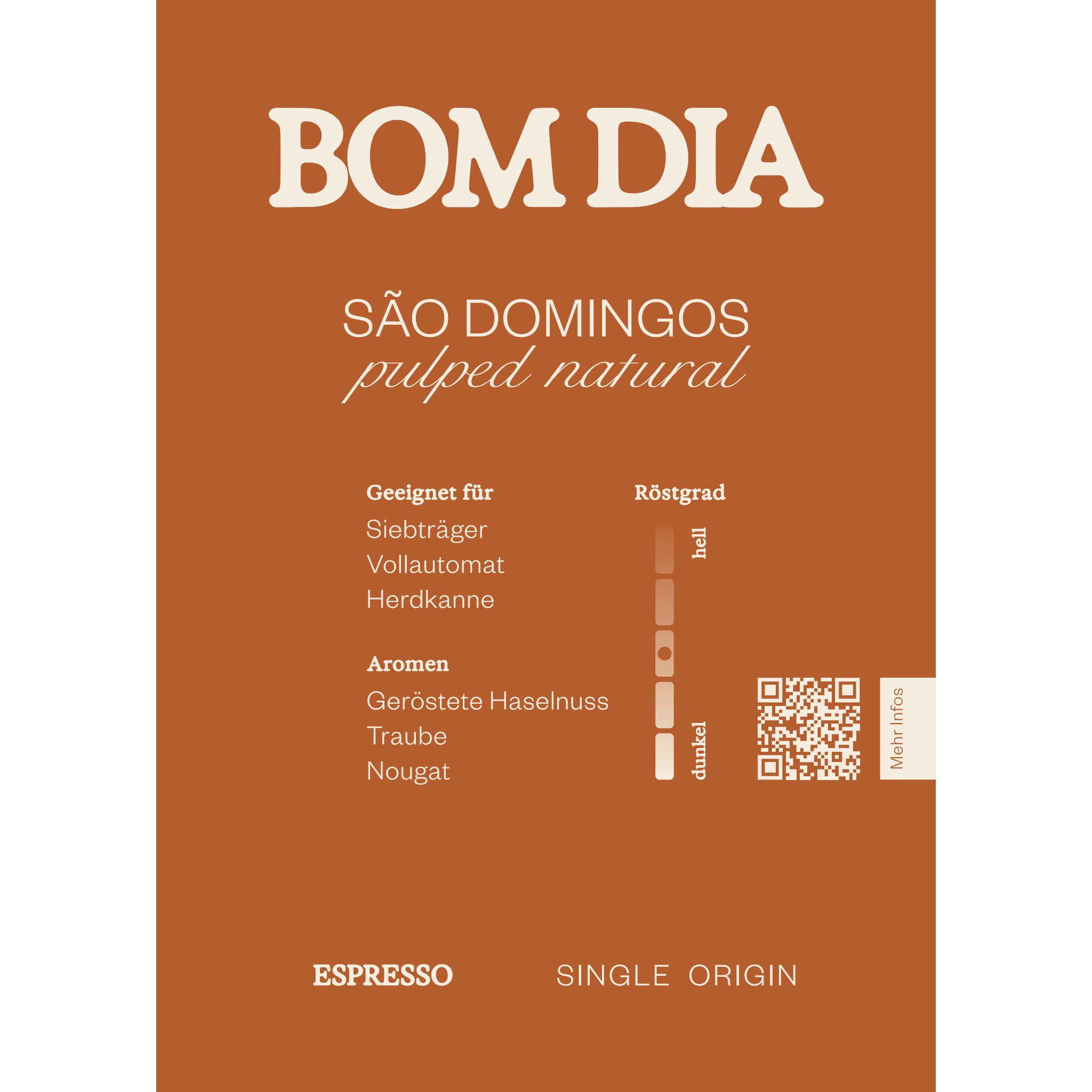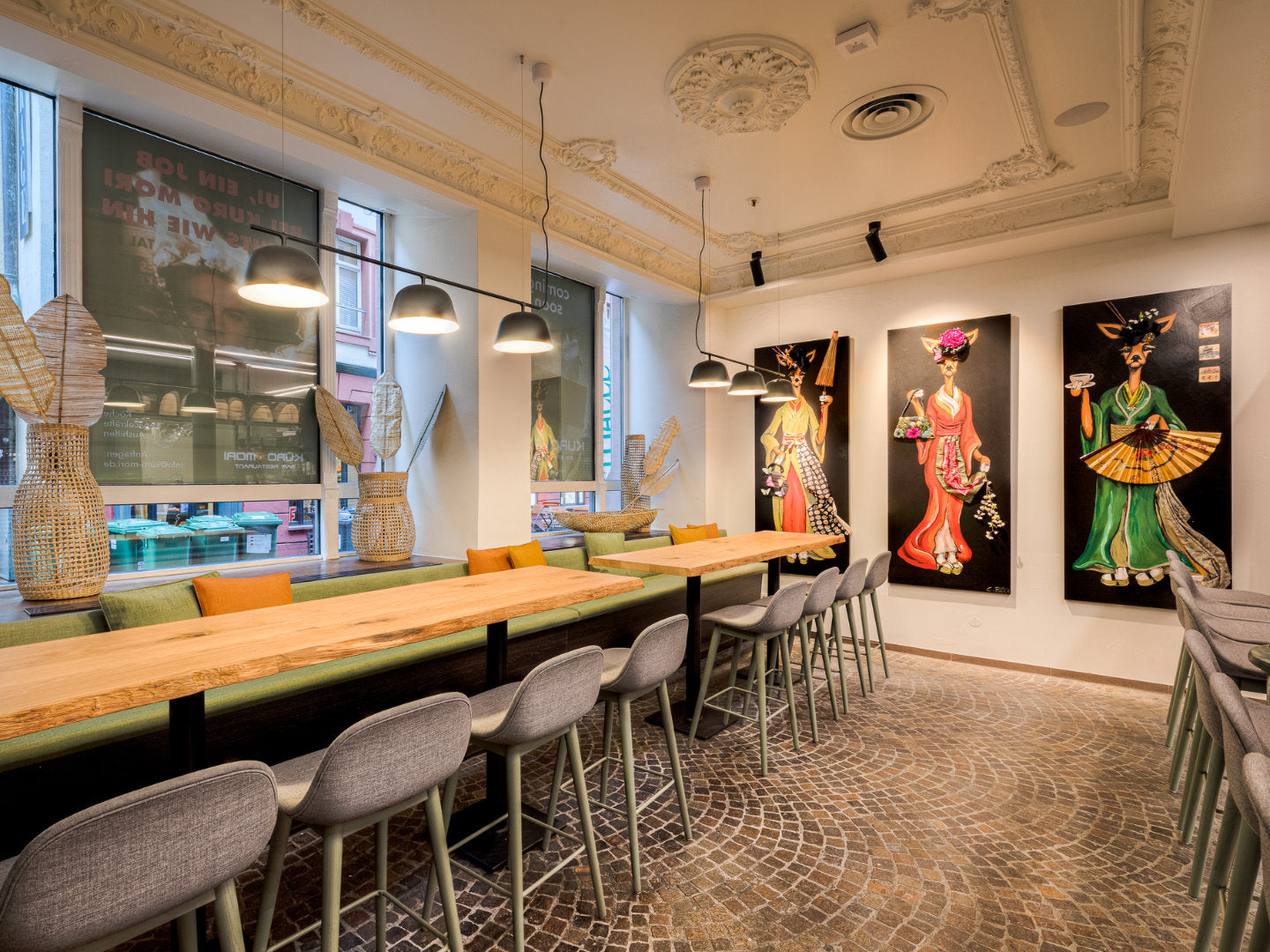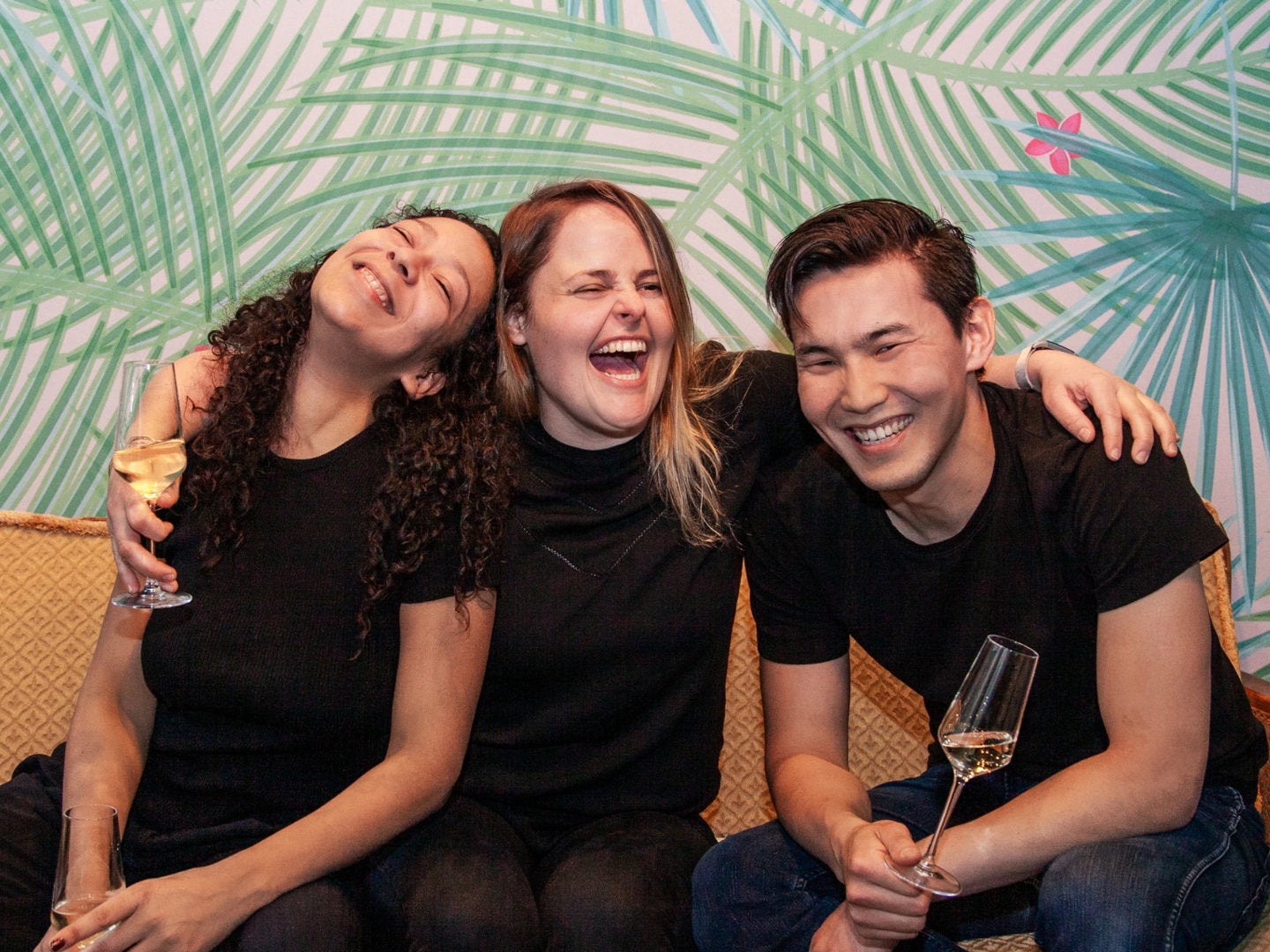We met Nikolai a few years ago at the German coffee championships and have been in contact ever since. With his company Desarrolladores de Café (in English, coffee developers, DDC for short), he wants to help shape the coffee world for the better.
Nikolai is a determined and determined guy, as the tattooed DDC logo on his right wrist proves. He has a critical view of unfiltered consumption and questions social and global phenomena. It was precisely these characteristics that brought him to specialty coffee in 2011. Like us, he was interested in better understanding the popular drink coffee and not content himself with the fact that the beans can be bought cheaply in the supermarket.

Nikolai and Aurore with their trophies at the Hamburg Coffee Festival 2019. They won first and third place at the Cup Tasting Championships.
Nikolai fights for better and fair coffee in Colombia
Far too often, people lose sight of the circumstances when it comes to products that are produced far away. That's why Nikolai emigrated to Colombia. There, where a lot of coffee grows, producers work hard and often still don't earn enough to live in dignity. Instead of keeping his blinders on and consuming blindly, Nikolai decides to bring about change.
In Colombia it was quite tough at the beginning: “Learning the language and rules and understanding everything was pretty difficult,” says Nikolai. Today he doesn't regret his decision. He gets to know a lot of interesting coffees and initiates micro-revolutions here and there, as he says. “You don't change the whole world, but a few small worlds,” he explains.
For example, the world of Norman. When Nikolai meets the coffee farmer, he lives in a small, leaky hut made of plastic and tarpaulins. He runs his farm in La Sierra, Medellín. By working with DDC and offering fair prices for his coffee, he was able to build a weatherproof wooden house with a concrete foundation. “Experiencing something like that is what motivates us to continue with DDC,” enthuses Nikolai.
Omar Arango Tinoco can also make the work processes on his farm more pleasant for everyone thanks to the fair prices for his green coffees. Investments become possible where previously every peso had to be turned over. We have had coffees from him in our range in the past. With the Colombia Tabi (now out of stock) we were able to convince the expert jury at the 2021 Coffee Panel and take third place.

Omar Arango Tinoco and Nikolai checking the quality of freshly harvested coffee cherries.
Consumer decisions change worlds
Nikolai is a vegan out of conviction. But he cares about more than his own consumption. He wants to actively change things for the better with his decisions. It is completely clear to him that you cannot change everything at once. “ If you don’t want to change anything, you’re going the wrong way, ” he says.
When it comes to coffee, the question is: Do I go for the cheap beans on the supermarket shelf, where after the coffee tax has been deducted, practically nothing can remain with the farmers in the producing countries, or do I choose a transparent, fair and therefore also sustainable product ?
Simply choosing a more expensive product is rarely the solution. Profit maximizers have long since jumped on the bandwagon of high-quality coffee. It is important to actively inform yourself. It may be tiring, but it also makes life more worth living. With articles like this one, we give readers the chance to make informed purchasing decisions in our blog.
Excellence, expertise and ethics are the cornerstones of DDC
“The area of excellence is about refining coffee harvesting, processing techniques and roasting techniques,” explains Nikolai. He runs a coffee school and a roasting company and is always in close contact with the farmers from whom he sources his coffee for his own roasting and export.
He looks, listens and wants business relationships not to be fights, but rather cooperation on an equal footing. He sets prices for green coffee together with producers, exchanges coffee knowledge and thus ensures mutual growth. “For me, an expert is someone who continues to learn every day,” says Nikolai. This applies to both coffee quality and ethical trading.
Colombian green coffees from the farm to us
Nikolai works with various farms. From small businesses with 3 people to larger farms where around 100 people work during the harvest season, everything is included. It is important to him that he has a good rapport with the farmers and that they are willing to question processes together in order to improve quality and working conditions as well as to respond to customer requests, e.g. B. regarding the different methods for preparing green coffee.
Coffee harvest and processing in Colombia
It is harvested by hand. “It's just too steep for anything else, at least in the highland regions where we're traveling,” explains Nikolai. Most farms have a main and intermediate crop. This means that the harvest extends over 5 months of the year. Due to different climatic conditions, harvests take place throughout the year in Colombia. The least harvest typically occurs in July and August, Nikolai tells us.
The farmers prepare the harvested coffee cherries directly on the farm. Various techniques are used, from natural to honey to washed. After processing, the beans are dried. With washed coffee, the parchment skin usually still remains on the bean. In so-called milling stations, the beans are given the finishing touches using dry mills - called trilladora in Colombia. With DDC, Nikolai has now also purchased a drying mill to remove the parchment skins himself on site.
This is how Colombian coffee comes to Germany
In order to ship the green coffees from the region around Medellín to Germany, DDC works with the company Colombian Spirit. She takes care of everything bureaucratic with customs agents, the Federación Nacional de Cafeteros (National Association of Coffee Producers in Colombia, or FNC for short) and the anti-drug police. The green coffee beans then begin their journey to Hamburg via the ports of Cartagena and Santa Marta in northern Colombia.
You can read more about how coffee trading works and how we trade coffee in the linked article.
About sustainability, fairness and labels in the third wave of coffee
In the course of Third Wave Coffee we read and hear a lot about sustainability and fairness. In the rapidly growing specialty coffee scene, the important topics are increasingly in danger of becoming hollow marketing phrases. “Many roasters rely on what the importers say and don’t ask any further questions, e.g. B. what specifically resonates with the farmers,” says Nikolai. He would like to see more interest, mindfulness and curiosity from the roasters.
From Nikolai's point of view, there is still a lot to do when it comes to fairness. From his experience, the price of green coffee is usually around 16% of the roasted coffee price that the roasting companies sell to end customers. However, climate change is also accompanied by more and more crop failures, which can only be partially offset by price increases. Producers are increasingly looking for other crops or income opportunities. “Some roasters in Germany don’t want to pay more than €6 per kilo of green coffee. “Our standard coffee in Colombia costs €7.50 per kilo,” says Nikolai. “At €6 nothing is left hanging for the farmers.”
Nikolai tends to think little of labels. Here too, roasters and consumers all too often blindly rely on the good idea behind it. Direct cooperation with the farmers is much more important to him. This way he can see directly where what is happening and what effects it has. This is in stark contrast to a label whose specifications are checked once a year. We would like to thank Nikolai for the conversation and hope that you got an interesting insight into the coffee world in Colombia.
